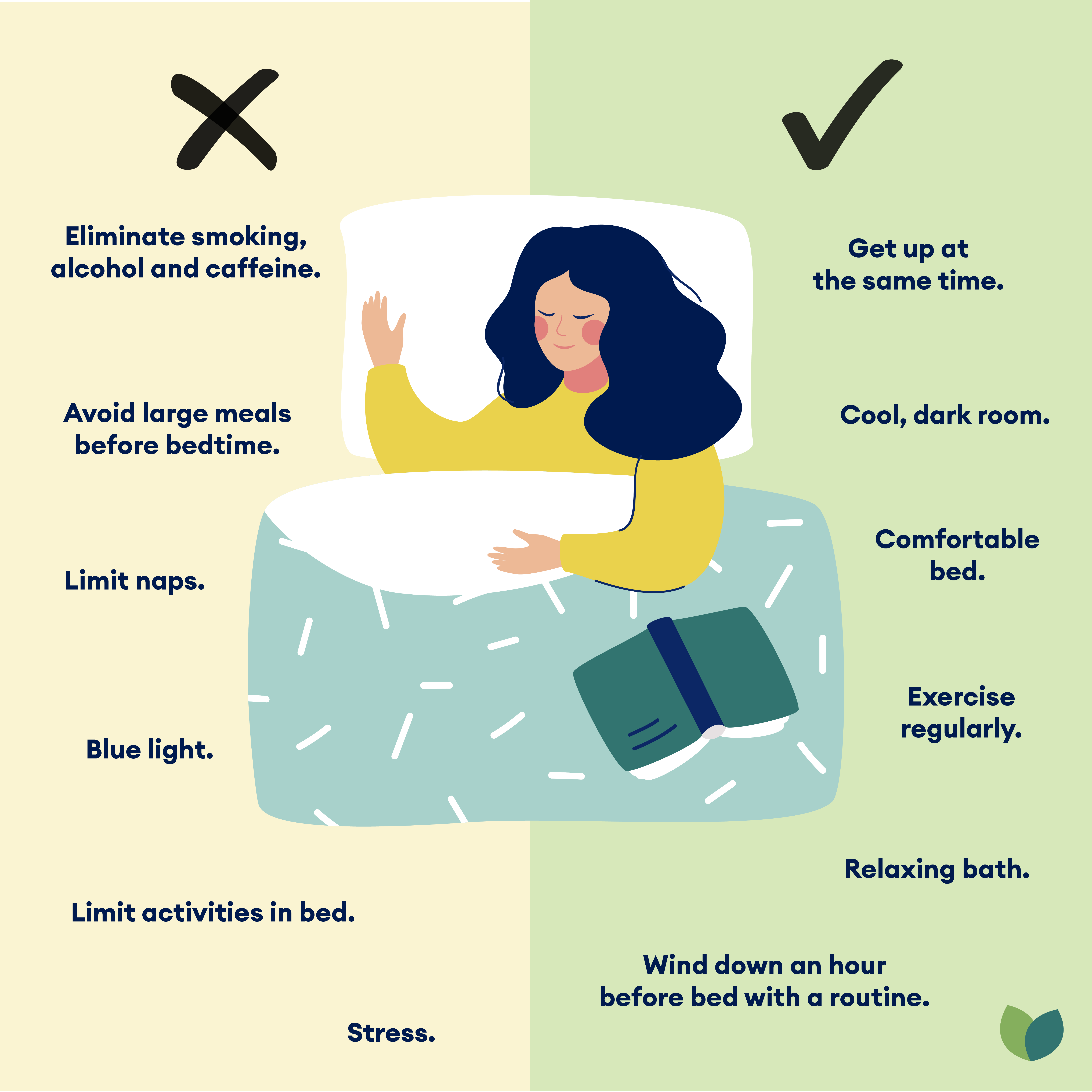Healthy sleep is one of the pillars of a good lifestyle and affects almost every aspect of your health. Healthy sleep is the foundation for a fulfilling and productive life. But in a world that never seems to rest, it can be challenging to get the rest you need. In this article, we take a look at how sleep supports your immune system, what goes on in your brain during the different stages of sleep, and the far-reaching effects a lack of sleep can have on your concentration and overall health. We also explain what poor sleep really means, at what point you can speak of chronic sleep deprivation and what you can do to improve the quality of your sleep.
The influence of sleep on the immune system
A good night’s sleep is crucial for a strong immune system. While you sleep, your body produces important immune cells such as T-cells and cytokines that fight infection and inflammation. Sleep promotes the production of these cells and allows the immune system to work more effectively. Studies show that people who don’t get enough sleep have a lower immune response, which makes them more susceptible to viruses such as the common cold and flu.
If you sleep poorly or have frequent sleep interruptions, this system will be disrupted, reducing your ability to fight off illness and recover quickly.
The stages of sleep and what happens in the brain
The human sleep cycle consists of several phases that are repeated throughout the night and are divided into two main categories: REM (Rapid Eye Movement) and Non-REM sleep. Each cycle lasts around 90 to 120 minutes and begins with non-REM sleep, followed by a REM phase.
- Non-REM sleep:
-
- Stage 1: The transition from wakefulness to sleep. This phase is short and only lasts a few minutes. Muscle activity slows down and eye movements stop.
- Stage 2: Light sleep, in which the heartbeat and breathing slow down and the body temperature drops. This stage accounts for about 50% of all sleep.
- Stage 3: This is the deepest and most restorative sleep. During this stage, tissue repair takes place and important hormones that promote growth and appetite regulation are released.
- REM sleep:
-
- During the REM phase, which makes up around 25% of the sleep cycle, the brain is particularly active. This is the phase in which most dreams occur. The brain processes and consolidates memory and learning here. The eyes move quickly under the closed eyelids while the muscles are temporarily paralysed to prevent you from acting out your dreams.
This cyclical nature of sleep supports various brain functions, including cognitive abilities, memory formation and emotional processing. A lack of sufficient and quality sleep can disrupt these processes and has a direct impact on your ability to think, learn and feel.
The effect of sleep deprivation on concentration
A lack of sleep has a direct impact on cognitive function and especially on concentration. If you don’t get enough sleep, your brain cannot process or store information effectively. This leads to reduced alertness and slower reaction times. Studies have shown that sleep deprivation impairs the ability to stay alert and solve complex tasks. It is as if the brain is running in “energy saving mode”, maintaining only the most necessary functions. Driving a car while sleep deprived is not advisable, nor is operating heavy machinery or working on other people, e.g. operating theatres.
Chronic sleep deprivation can even have long-term effects on cognitive health, including an increased risk of conditions such as depression, Alzheimer’s disease and dementia. So a good night’s sleep is crucial, not only to be able to function well the next day, but also for long-term brain health.
What poor sleep is and when sleep deprivation becomes chronic
What poor sleep is: Poor sleep can take many forms, including
- Difficulty falling asleep,
- frequent awakenings at night,
- waking up too early and
- inability to fall asleep again,
- restless and non-restorative sleep.
Such problems can occur occasionally, but if they happen regularly, they significantly impair the quality of sleep and can lead to health problems.
Chronic sleep deprivation: Chronic sleep deprivation is when you regularly don’t get enough sleep over a long period of time – usually at least three months. Most adults need between 7 and 9 hours of sleep per night. Chronic sleep deprivation can be caused by persistent sleep problems as well as life circumstances such as shift work, family commitments or long-term health problems.
Chronic sleep deprivation can have far-reaching health consequences, including an increased risk of heart disease, diabetes, depression and weight gain.
Causes of sleep deprivation
cThe causes of sleep deprivation can be varied, with both external and internal factors playing a role. Some of the most common causes include:
- Stress and anxiety: Mental stress can keep the mind active and make it difficult to fall asleep.
- Medical problems: Conditions such as sleep apnoea, restless legs syndrome and chronic pain can disrupt sleep.
- Lifestyle: Irregular sleeping times, excessive consumption of caffeine or alcohol and the use of electronic devices before bedtime can affect the sleep cycle.
- Environmental factors: An uncomfortable sleeping environment or noise can also disturb sleep.
What helps against sleep disorders
There are various approaches you can try to counteract sleep disorders:
- Improve sleep hygiene: This includes regular bedtimes, a comfortable sleeping environment and avoiding stimulants such as caffeine in the evening.
- Temperature: The room temperature is crucial and should be between 16 and 18 °C in a well-ventilated room.
- Darkness and silence: A room that is too bright as well as noise pollution affect our sleep. In the long term, this can lead to cardiovascular diseases.

- Relaxation techniques: Methods such as meditation, deep breathing or light yoga exercises before going to bed can help to relax the body and calm the mind.
- Exercise: Regular physical activity can improve sleep quality, but should not take place immediately before bedtime.
- Light evening meals: According to Swedish researchers from Uppsala University, meals high in fat and sugar put a strain on the metabolism and disrupt the deep sleep phase. The German Society for Sleep Research and Sleep Medicine also advises light evening meals.
- No alcohol: Many people think that alcohol helps because it makes you sleepy. In fact, alcohol can help you fall asleep faster. However, the quality of sleep is very poor. Even moderate alcohol consumption disrupts our deep sleep in the long term.
- Stick to a routine: Going to bed and getting up at the same time and also sticking to a routine before going to bed helps our sleep quality.
- Goodbye displays: Blue light keeps us awake and disrupts our circadian rhythm. It’s best to switch to a yellow light. Even better: avoid using displays from about 30 minutes before going to sleep and instead turn to a book.
What you should consider with over-the-counter medication for sleep disorders
You should exercise caution when using over-the-counter sleeping pills. Many of these medications contain antihistamines, which can cause drowsiness, but also have side effects such as dry mouth and drowsiness the next day. It’s important to only use these medications for the short term and to be aware of the potential for addiction.
Conclusion
Healthy sleep is essential for maintaining physical, mental and emotional health. It influences the immune system, promotes body repair and regeneration and supports cognitive functions such as concentration and memory. Sleep disorders can be caused by a variety of factors, from stress and environmental conditions to health problems. It is important to take proactive measures to improve sleep hygiene, reduce stress and seek medical advice where necessary to optimise sleep quality.
Frequently asked questions
Most adults need between 7 and 9 hours of sleep per night to feel and function at their best.
The first signs include tiredness during the day, irritability, difficulty concentrating and a general feeling of imbalance.
Although it is not possible to completely compensate for sleep deficits, a short nap or a few extra hours at the weekend can help to improve your well-being in the short term.
Sleeping pills, especially over-the-counter ones, are intended for short-term use and should be used with caution. It is advisable to speak to a doctor before taking them, especially for long-term use.
Alcohol can cause you to fall asleep more quickly, but disrupts the REM phase, which leads to less restful sleep and makes waking up during the night more likely.
If you wake up in the middle of the night and can’t get back to sleep, try doing quiet activities like reading or light stretching instead of looking at screens or doing mentally taxing tasks.

